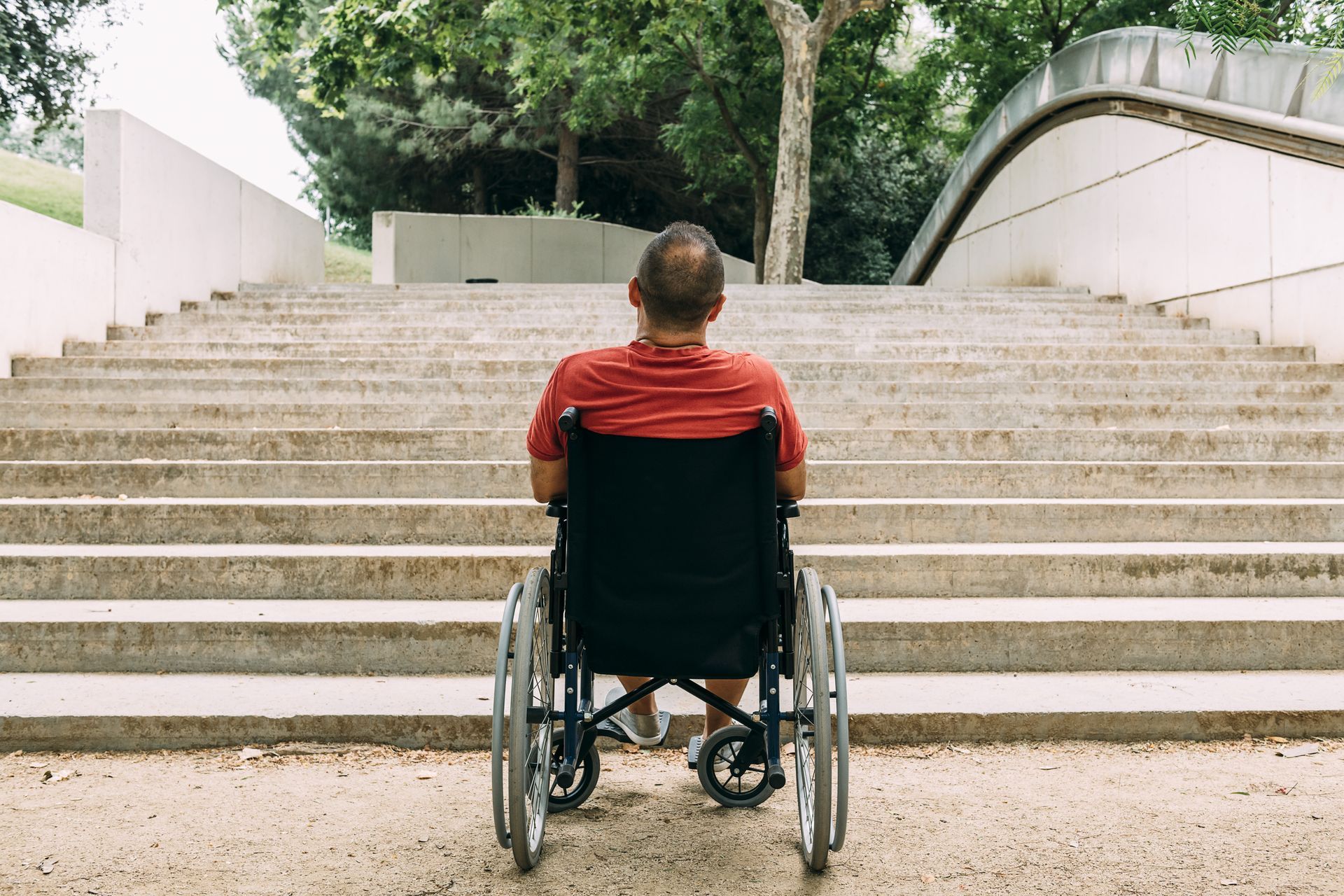781-9578076
How to Find the Perfect Balance between Independence and Support
In the journey of aging, finding the perfect balance between independence and support is pivotal for seniors. As loved ones grow older, it's natural to seek out senior care services that can provide the necessary assistance without impeding their freedom. This delicate balance can greatly enhance the quality of life for seniors and bring peace of mind to their families.
When it comes to senior care services, it is essential to understand the available options and how they cater to individual needs. From in-home care to assisted living communities, each choice offers unique benefits and challenges. By exploring these options, families can make informed decisions that empower their loved ones to remain independent while receiving the necessary support.
In this article, we will delve into the world of senior care services and explore ways to find the perfect balance. We will discuss key factors to consider, such as the level of assistance needed, social interaction opportunities, and cost implications. By understanding these crucial aspects, you can make a well-informed decision that prioritizes both the independence and support of your aging loved ones.
Finding the right senior care services may seem overwhelming, but with the right information and guidance, you can ensure a harmonious blend of independence and support for your loved ones at this important stage of their lives.
Understanding the needs of seniors
To find the perfect balance between independence and support, it is crucial to first understand the unique needs of seniors. As individuals age, they may face physical, cognitive, and emotional changes that require varying levels of assistance. Some seniors may only need help with daily activities such as grooming and meal preparation, while others may require more intensive medical care due to chronic conditions or disabilities.
It is important to have open and honest conversations with seniors about their needs and preferences. This will help determine the level of assistance required and ensure that their wishes are respected throughout the decision-making process. By actively involving seniors in the discussion, families can empower them to make informed choices about their care.
The importance of finding the perfect balance
Finding the perfect balance between independence and support is crucial for the overall well-being of seniors. While it is important to ensure their safety and well-being, it is equally important to preserve their sense of independence and autonomy. When seniors are able to maintain a level of control over their lives, they often experience improved mental health, higher self-esteem, and a greater sense of purpose.
On the other hand, excessive support can lead to feelings of helplessness and loss of identity. Seniors have a lifetime of experiences and wisdom, and it is essential to honor and respect their autonomy. By finding the right balance, families can create an environment that promotes independence while providing the necessary support.
Types of senior care services available
There are various types of senior care services available, each offering different levels of independence and support. The key is to match the needs and preferences of seniors with the most suitable option. Here are some common types of senior care services:
- In-home care: This option allows seniors to remain in the comfort of their own homes while receiving assistance with daily activities. In-home care providers can help with tasks such as housekeeping, meal preparation, medication management, and personal care. This option is ideal for seniors who value their independence and want to maintain their familiar surroundings.
- Assisted living communities: These communities provide seniors with a supportive environment that offers a range of services and amenities. Seniors live in private apartments or rooms while having access to assistance with daily activities, socialization opportunities, and on-site medical care. Assisted living communities are a great choice for seniors who value social interaction and want to live in a community setting.
- Memory care: This specialized care is designed for seniors with Alzheimer's disease or other forms of dementia. Memory care facilities provide a secure environment with trained staff who are knowledgeable about the unique needs of individuals with memory impairments. These facilities offer personalized care plans, engaging activities, and specialized therapies to support seniors with cognitive decline.
- Nursing homes: Nursing homes provide 24/7 medical care and support for seniors with complex medical needs or disabilities. These facilities have skilled nursing staff who can administer medications, provide wound care, and offer rehabilitation services. Nursing homes are suitable for seniors who require a higher level of medical supervision and assistance.
Factors to consider when choosing senior care services
Choosing the right senior care services involves considering various factors that can significantly impact the balance between independence and support. Here are some essential factors to consider:
- Assessment of needs: Conduct a comprehensive assessment of the senior's needs and preferences. This assessment should include an evaluation of their physical, cognitive, and emotional well-being. It is essential to consider any existing medical conditions, mobility issues, or cognitive impairments.
- Location: Consider the location of the senior care facility or service. It is important to choose a location that is convenient for family members to visit and accessible to necessary amenities such as healthcare facilities, shopping centers, and recreational activities.
- Cost implications: Understand the financial implications of different senior care options. Determine the budget and explore payment options such as long-term care insurance, government assistance programs, or personal savings. It is important to ensure that the chosen option is affordable and sustainable in the long run.
- Staff qualifications and training: Research the qualifications and training of the staff members at the senior care facility or service. Ensure that they have the necessary expertise and experience to provide high-quality care. Look for facilities that invest in ongoing training and education for their staff.
- Social interaction opportunities: Consider the social interaction opportunities provided by the senior care service. Socialization is crucial for seniors' mental and emotional well-being. Look for facilities that offer engaging activities, outings, and opportunities for social interaction with peers.
Assessing the level of independence needed
To find the perfect balance between independence and support, it is important to assess the level of independence needed by the senior. This assessment should consider the senior's physical abilities, cognitive function, and emotional well-being. Here are some key points to consider:
- Physical abilities: Evaluate the senior's ability to perform daily activities such as bathing, dressing, and meal preparation. Determine if they require assistance with mobility, medication management, or other physical tasks.
- Cognitive function: Assess the senior's cognitive abilities, including memory, decision-making, and problem-solving skills. This assessment will help determine the level of cognitive support needed, especially for seniors with conditions such as Alzheimer's disease or dementia.
- Emotional well-being: Consider the senior's emotional well-being and social needs. Assess their preferences for social interaction, hobbies, and activities that bring them joy and fulfillment. It is important to choose a senior care service that can provide opportunities for meaningful engagement and emotional support.
Finding senior care services that offer support and independence
Finding senior care services that offer the perfect balance between support and independence requires thorough research and consideration. Here are some steps to help in the process:
- Research and gather information: Conduct thorough research on different senior care services available in the desired location. Read reviews, visit websites, and talk to professionals in the field to gather as much information as possible.
- Visit facilities and talk to staff: Schedule visits to senior care facilities to get a firsthand experience of the environment and services offered. Take the opportunity to talk to staff members, ask questions, and observe how they interact with residents.
- Seek recommendations: Reach out to friends, family, or healthcare professionals for recommendations. Personal experiences and insights can provide valuable information when making a decision.
- Review contracts and policies: Carefully review contracts, policies, and pricing structures of potential senior care services. Ensure that all terms and conditions are clear and transparent before making a commitment.
- Trust your instincts: Lastly, trust your instincts and listen to your loved one's preferences. Pay attention to how you feel during visits and interactions with staff members. It is important to choose a senior care service that aligns with your values and gives you peace of mind.
Creating a personalized care plan
Once the right senior care service has been chosen, it is important to create a personalized care plan that caters to the specific needs and preferences of the senior. A personalized care plan ensures that the senior receives the appropriate level of support while maintaining their independence. Here are some steps to create a personalized care plan:
- Assess individual needs: Collaborate with the senior, healthcare professionals, and senior care providers to assess the individual needs, preferences, and goals. This assessment should cover physical, cognitive, emotional, and social aspects.
- Identify specific services required: Based on the assessment, identify the specific services required to meet the senior's needs. This may include assistance with personal care, medication management, meal preparation, transportation, or social activities.
- Prioritize independence: Ensure that the care plan prioritizes the senior's independence and autonomy. Identify areas where the senior can maintain control and make decisions, while providing the necessary support in areas where it is needed.
- Regularly review and update: Regularly review and update the care plan as the senior's needs change over time. This allows for flexibility and ensures that the care plan continues to meet the evolving needs of the senior.
Tips for maintaining a healthy balance
Maintaining a healthy balance between independence and support requires ongoing effort and communication. Here are some tips to help maintain this balance:
- Regular communication: Maintain open and regular communication with the senior and the senior care service provider. This allows for ongoing assessment of needs and ensures that any concerns or adjustments can be addressed promptly.
- Encourage independence: Continuously encourage and support the senior in maintaining their independence. Provide opportunities for decision-making, engagement in activities, and involvement in their own care whenever possible.
- Promote social interaction: Foster social interaction and connections for the senior. Encourage participation in group activities, outings, and opportunities to interact with peers. Socialization is essential for maintaining emotional well-being and a sense of belonging.
- Monitor and adjust support: Regularly monitor the level of support provided to ensure that it aligns with the senior's needs. Be open to adjusting the level of support as necessary to maintain the desired balance between independence and assistance.
- Advocate for the senior: Be an advocate for the senior's needs and preferences. Ensure that their voice is heard and respected throughout the caregiving process. This can involve advocating for appropriate medical care, personalized services, and a safe and supportive environment.
Conclusion: Providing the best care for seniors
- Finding the perfect balance between independence and support is crucial when it comes to senior care services. By understanding the needs of seniors, exploring the available options, and considering key factors, families can make informed decisions that prioritize the independence and support of their aging loved ones.
- By assessing the level of independence needed and finding senior care services that offer the right balance, families can create a personalized care plan that caters to the specific needs and preferences of the senior. Maintaining a healthy balance requires ongoing effort, communication, and a commitment to promoting independence and social interaction.
- Ultimately, the goal of senior care services is to provide the best care possible while honoring the individuality and autonomy of seniors. With the right information and guidance, families can navigate the world of senior care services and find the perfect balance between independence and support for their loved ones at this important stage of their lives.
- Remember, the journey of aging is unique for each individual, and finding the perfect balance is a continuous process. With patience, understanding, and a commitment to quality care, seniors can enjoy a fulfilling and meaningful life while receiving the necessary support they need.
Wheelchair Transportation, Senior Care & More!
CONTACT US
Office: 781-957-8076
Fax Number : (978) 409-3374
100 TradeCenter, Suite G-700, Woburn, MA 01801
USEFUL LINKS
SERVICES
STAY INFORMED
Subcribtion
We will get back to you as soon as possible
Please try again later


